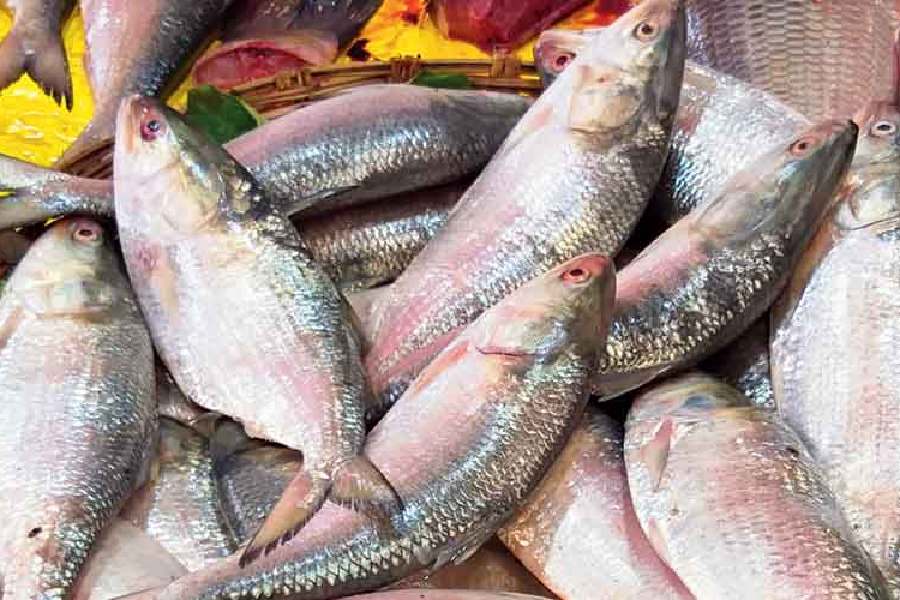Over 300kg of baby hilsa have been seized from fishermen in Diamond Harbour following a raid by a team of senior officials of the fisheries department.
Catching or selling hilsa weighing below 500g is banned in Bengal to ensure that the fish gets to grow and can lay eggs, officials in the fisheries department said.
“Around 3.5 quintal (over 300kg) of small hilsa were seized from fishermen near Nagendrabazar in Diamond Harbour on Friday. The catch was later sold through auction, which was conducted in the presence of police and members of the fishermen’s association,” said Piyal Sardar, additional director of fisheries, South 24-Parganas.
After the state government’s ban on hilsa fishing ended on June 14 (every year it begins on April 15 and stays for 61 days), fishermen from Kakdwip, Namkhana, Frasergunj and Bakkhali started venturing into the waters on trawlers.
Several representatives of fishermen’s associations alleged that a section of their colleagues has been using troll nets that are prohibited within 12 nautical miles (around 22km) of the coastal area.
“The rule states using monofilament nets with loops below 90mm in size is banned for hilsa fishing. The idea is to ensure that hilsa is conserved by allowing the fish to grow,” said Bijan Maity of the West Bengal United Fishermen Association in Kakdwip.
The production of hilsa in Bengal has dwindled from around 80,000 tonnes in 2001 to close to 15,000 tonnes in 2013 to around 10,000 tonnes in 2020, largely because of excess fishing in the Bay of Bengal.
“If small hilsa are caught, the process of creating a stock of hilsa with big fish returning to the sea is hindered,” said Asim Kumar Nath, who has been studying the migration of hilsa at Sidho-Kanho-Birsha University.
